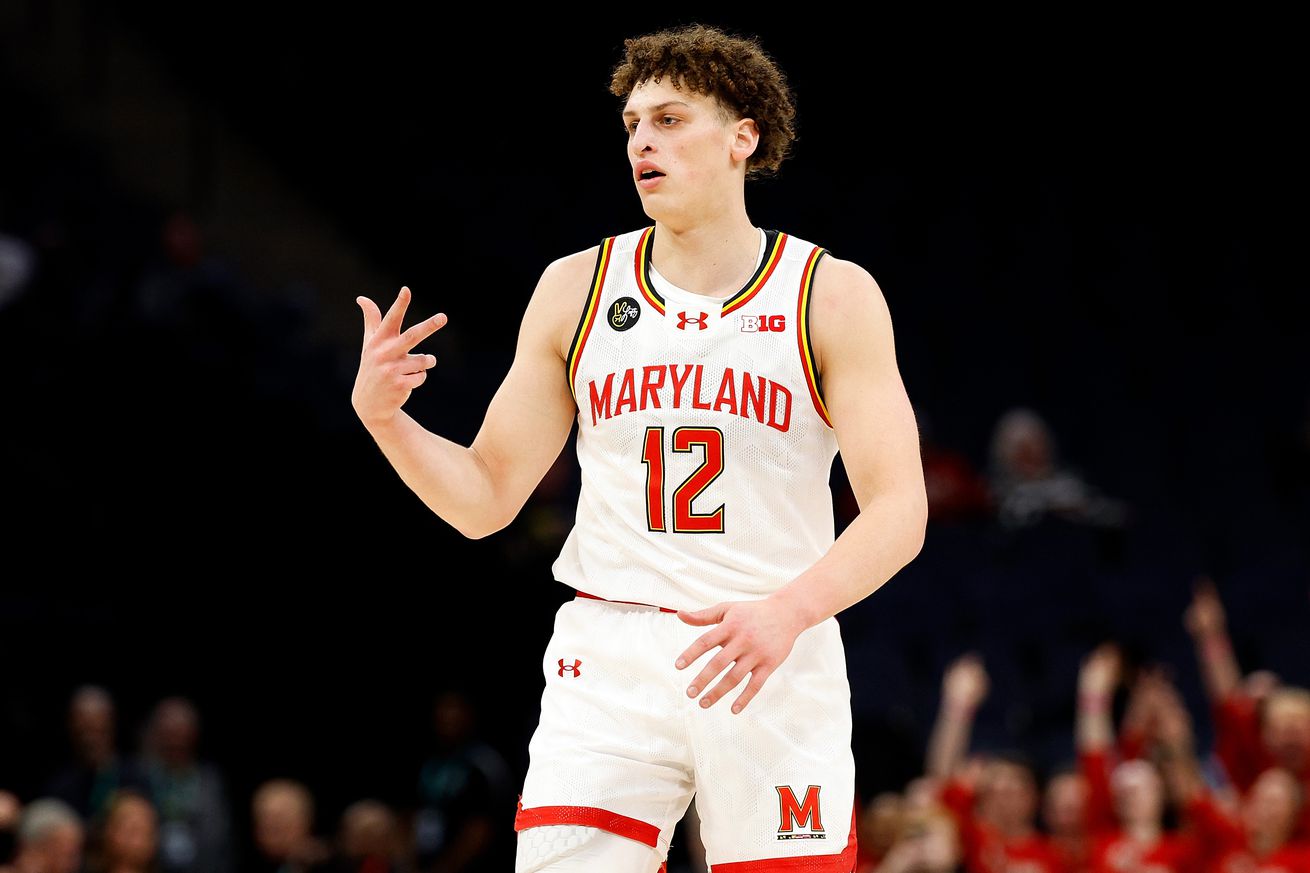
Here’s what to know about Wednesday’s game.
Maryland men’s basketball leapt out to an early lead Wednesday against Rutgers and never looked back, beating the Scarlet Knights in the first round of the Big Ten Tournament, 65-51. The Terps will play Wisconsin in the second round Thursday afternoon.
Here are three takeaways from Wednesday’s game.
Maryland’s defense was excellent
The Terps have an identity built around their stalwart defense. Despite having frequent offense lapses — the primary culprit of their less-than-impressive record — their defense has rarely let up and allowed them to stay in games.
On Wednesday, it was as good as ever. The Scarlet Knights scored only 22 points in the first half and 29 in the second, often flustered and unable to adjust to Maryland’s pressure. Fifty-one points are the fewest Maryland has ever allowed in a Big Ten Tournament game.
Maryland didn’t have to rely on full-court pressure or overdo its feistiness with the risk of picking up fouls. Instead, it rotated quickly, adeptly contesting shots and limiting second-chance opportunities by not letting up on the boards.
The Terps also dared the Scarlet Knights, who have struggled all year to shoot the ball, to attempt outside jumpers. That strategy paid off, as Rutgers made just five of its 21 attempts from three.
“Rutgers is a lot like us,” Terps head coach Kevin Willard said. “There’s times where they really struggle to shoot the ball, and they run good stuff. But there’s times where you’ve just got to pack it in on them at times and just try to make them make threes.”
Uncharacteristically good shooting from the Terps
When you have an elite defense like Maryland, all it takes is a decent shooting night to win. The Terps got that on Wednesday, especially early.
The tone was set from the jump when Maryland’s first four 3-pointers fell, accelerating it into an early 14-point advantage. Willard slotted freshman Jamie Kaiser Jr. into the starting lineup for the fourth time this season, and it paid off. Although he’s struggled to find consistency in his rookie campaign, Kaiser carries the reputation of a capable outside shooter, and earned himself another string of extended minutes by going 3-for-6 from beyond the arc.
“It definitely opens up space for [forward Julian Reese] to go to work down there, and driving lanes for DeShawn [Harris-Smith] and Jahmir [Young],” Kaiser said of his shooting. “Just helps the team.”
Unsurprisingly pacing the Terps was Young, who proved why the media elected him to the all-conference first team. He came within sight of a triple-double, ultimately ending the game with 11 points, eight rebounds and seven assists.
Donta Scott also had a strong day, leading all scorers with 16 points. His third 3-point attempt hit the rim, caromed off the backboard and rolled around the iron before dropping through the hoop. Kaiser’s third make from distance took a similar route.
It was just that kind of day for Maryland, which shot a respectable 43.1% from the field and 35% from three, the latter being almost seven percentage points higher than its season average.
A late blow to Maryland’s depth
The result was already sealed when Maryland took what could prove to be a major blow, to its depth. Guard Jahari Long, usually one of the first players off the bench, went down late with a knee injury. Attempting a navigate a pair of Rutgers defenders, Long’s right knee buckled and he immediately hit the floor in pain. He required assistance to exit the court and struggled to put weight on his leg.
The team was unable to provide an immediate update on Long’s status.
Playing on back-to-back days is difficult no matter the circumstances. A comfortable win on the first day at a minimum allows for players to stay fresher, not subject to the intensity of a close contest. However, losing Long would negate that advantage — not just because of his impact on the court, but because the task of stringing together consecutive wins is even more arduous with tired legs.
One can assume Young and others will have to play more minutes if Long is unable to provide them rest. The alternative is giving more burn to less proven guard options, like freshman Jahnathan Lamothe, who has primarily only seen the court in non-consequential situations.
